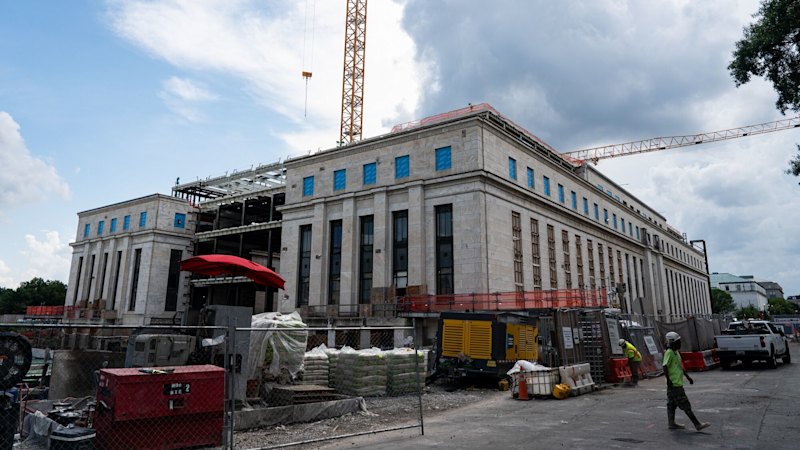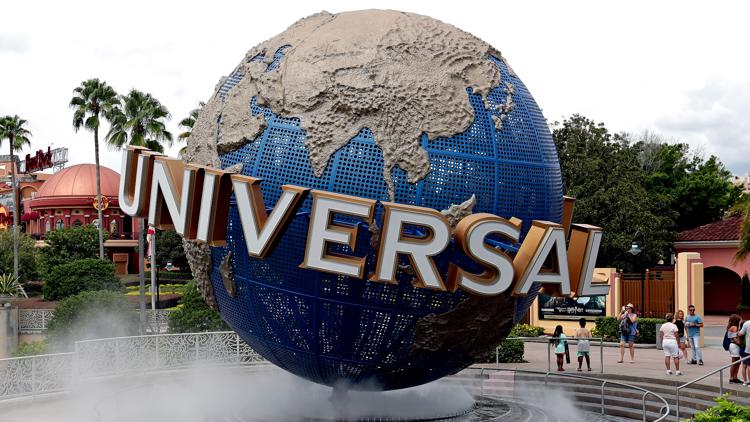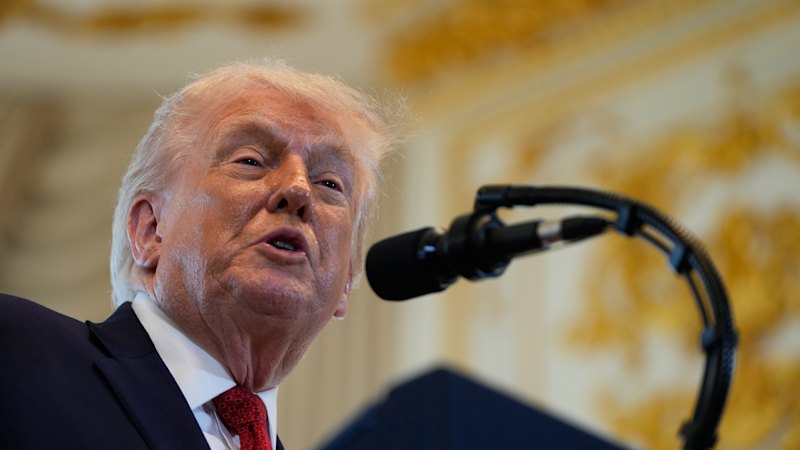
Donald Trump has escalated his long-standing conflict with Federal Reserve Chairman Jerome Powell, focusing on the significant renovation costs of the Fed’s headquarters. The Marriner S. Eccles Building, a neoclassical structure located near the White House, was originally budgeted at $1.9 billion when renovations began in 2021. However, costs have reportedly surged to $2.5 billion, raising eyebrows among critics.
The president’s allies have claimed that the renovation features extravagant amenities, including purported VIP dining rooms and executive elevators, leading to comparisons with the Palace of Versailles. Trump’s administration is now scrutinizing the project, suggesting that such opulence could jeopardize Powell’s position.
Financial Oversight and Political Implications
Russell Vought, the director of the Office of Management and Budget, expressed the president’s concerns in a letter to Powell, stating that Trump was “extremely troubled” by what he described as an “ostentatious overhaul.” Vought intends to personally inspect the renovation work, underscoring Trump’s dissatisfaction as a builder who values cost-effective projects.
Kevin Hassett, another key figure in Trump’s economic team and a potential candidate to replace Powell, labeled the situation as “a real problem of oversight and excess spending.” He echoed the sentiment that the escalating costs indicate a failure in management. Similarly, Kevin Warsh, also considered for the Fed chair, criticized the situation as “outrageous,” asserting that the Federal Reserve has lost its way.
In an attempt to counter this criticism, Powell defended the renovation in a letter to Vought. He emphasized that the Fed is committed to being responsible stewards of public resources, fulfilling duties assigned by Congress.
While Trump cannot dismiss Powell solely for differences over interest rates, he could potentially seek to remove him if grounds such as “inefficiency, neglect of duty, or malfeasance” are established. Recent comments from Trump suggest he might view the renovation overruns as a possible justification for an investigation into Powell’s conduct.
Political Reactions and Accountability
In response to Trump’s actions, opponents have framed the investigation as a politically motivated witch-hunt rather than a legitimate concern over public spending. Senator Elizabeth Warren criticized the scrutiny, asserting that “nobody is fooled by this pretext to fire Powell.” She emphasized the need for transparency at the Federal Reserve while redirecting attention to Trump’s own administration’s expenditures.
Powell has attempted to quell the narrative surrounding excessive spending, stating, “There’s no VIP dining room. There’s no new marble, there are no special elevators.” The Federal Reserve has since launched a FAQ page on its website to clarify misconceptions about the renovation, highlighting that essential systems such as plumbing and electrical infrastructure are outdated and in need of replacement.
The spike in costs has been attributed to increased labor and material expenses, exacerbated by the COVID-19 pandemic, as well as the discovery of asbestos and toxic soil during construction. Moreover, plans for renovations of a second Fed building were canceled last year, indicating a shift towards cost-cutting measures.
To further ensure accountability, the Federal Reserve has engaged its inspector general to oversee the project. Nevertheless, the White House remains vigilant. James Blair, a deputy chief of staff appointed by Trump, plans to assess whether the renovation aligns with the original 2021 blueprint approved by his commission.
While the Federal Reserve operates independently and is accountable to Congress, the ongoing scrutiny from the Trump administration raises critical questions about the intersection of political influence and economic governance. As the debate continues, Warren pointed out that if Trump is genuinely concerned about extravagant government projects, he should reconsider his own administration’s actions, particularly referencing the plans of Scott Turner, Secretary of Housing and Urban Development, to renovate the National Science Foundation building.
Recent developments highlight the tensions between economic policy, political ambition, and the implications of public spending. As the situation unfolds, it remains to be seen how these dynamics will affect Powell’s tenure and the broader landscape of monetary policy in the United States.






